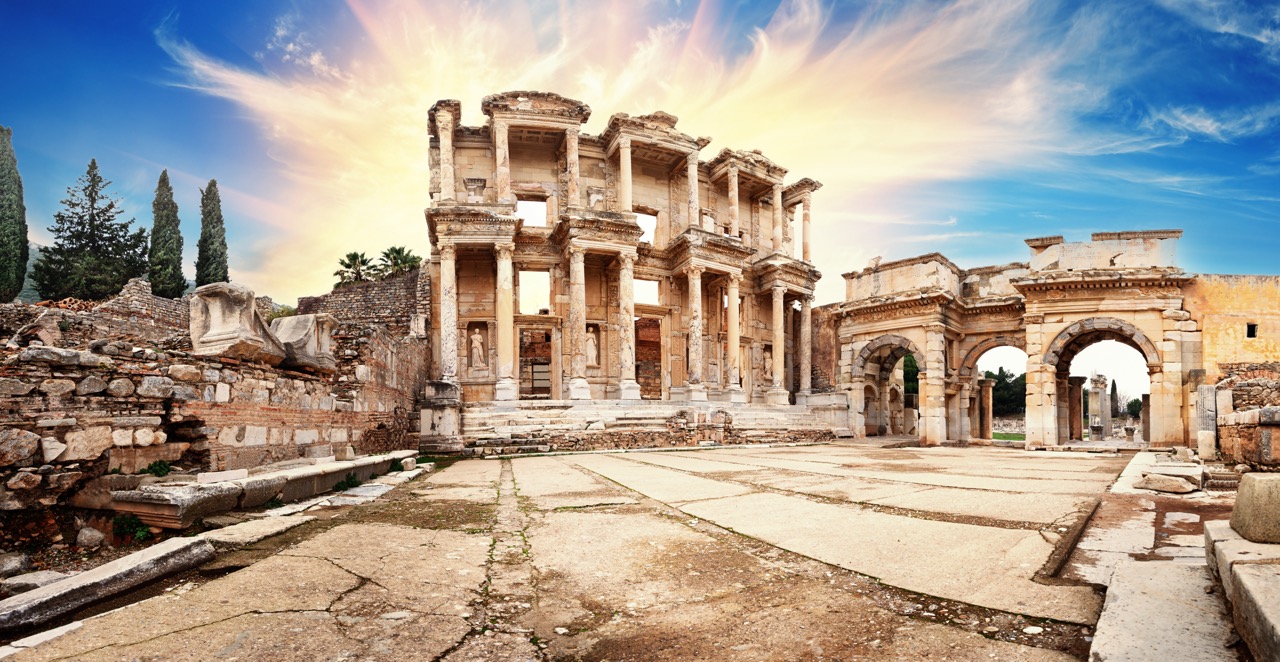The Church of Ephesus holds a significant place in the early history of Christianity, playing a vital role during the Apostolic Age and being one of the seven churches mentioned in the Book of Revelation. However, despite its importance, the Church of Ephesus eventually faded into history. In this post, we’ll explore the rise, significance, and decline of the Church of Ephesus, offering a deeper understanding of what happened to this once-prominent Christian community.
1. The Church of Ephesus: Its Founding and Early Significance
The Church of Ephesus was one of the earliest Christian communities, founded in the 1st century AD. According to the New Testament, the Apostle Paul played a central role in establishing the church during his missionary journeys. Ephesus was a major city in the Roman Empire, known for its wealth and the presence of the Temple of Artemis, but it also became an important center for the early Christian faith.
1.1. Paul's Ministry in Ephesus
The Apostle Paul visited Ephesus several times and spent approximately three years there during his third missionary journey. His work was pivotal in spreading Christianity in the city and the surrounding region. According to the Acts of the Apostles, Paul’s teachings led to many conversions, and the Christian community in Ephesus grew rapidly.
- Paul’s Letters: The Epistle to the Ephesians is one of Paul’s letters written to the church, offering guidance on faith, unity, and living a Christian life.
- Conflicts with Pagan Worship: Paul’s preaching in Ephesus also stirred conflict with those who worshipped Artemis, leading to a riot by silversmiths who made their living crafting idols of the goddess.
1.2. The Role of the Apostle John
Tradition holds that John the Apostle later settled in Ephesus and led the church after Paul’s departure. According to early Christian writings, John wrote the Gospel of John and three Epistles while residing in Ephesus. It is also believed that Mary, the mother of Jesus, lived in Ephesus under John’s care.
- Why Ephesus was Important: Ephesus was a strategic city, both for trade and for the spread of Christianity. Its prominence as a hub of Roman and Greek culture made it an ideal place for Christian leaders like Paul and John to evangelize.
2. The Church of Ephesus in the Book of Revelation
The Church of Ephesus is one of the Seven Churches of Asia mentioned in the Book of Revelation (Revelation 2:1-7). In this passage, the Apostle John relays a message from Jesus Christ to the church, praising them for their perseverance but also issuing a stern warning about their loss of love and devotion.
2.1. Christ’s Message to Ephesus
In Revelation, Christ commends the Church of Ephesus for its hard work and for resisting false teachings, but he warns them that they have “lost their first love.” This likely refers to their decline in spiritual fervor and love for God.
- Revelation 2:4: “Yet I hold this against you: You have forsaken the love you had at first. Consider how far you have fallen! Repent and do the things you did at first.”
- Call to Repentance: The message calls on the church to repent and return to their earlier devotion, warning them that their lampstand would be removed if they did not.
2.2. Symbolism and Importance
The warning to the Church of Ephesus reflects the struggles of early Christian communities to remain faithful amid external pressures, including persecution and internal divisions. Despite their strong beginnings, Ephesus serves as a cautionary tale about the dangers of spiritual complacency.
3. The Decline of the Church of Ephesus
The Church of Ephesus gradually declined over the centuries, following both internal and external factors that contributed to its eventual disappearance as a major Christian center.
3.1. Natural Disasters and Economic Decline
One of the key reasons for the decline of Ephesus was its geographical changes. Over time, the harbor of Ephesus, which had been a vital trade route, began to silt up, leading to economic decline. Additionally, several earthquakes devastated the city during the 3rd and 4th centuries, causing further destruction.
3.2. Religious Shifts and the Rise of Islam
As the Roman Empire transitioned into the Byzantine Empire, Christianity became more established, but new political and religious shifts began to affect the church’s prominence. The rise of Islam in the region during the 7th century further diminished the influence of the Christian church in Ephesus.
3.3. Abandonment of the City
By the 14th century, Ephesus had been largely abandoned due to its deteriorating economic conditions and the shifting of trade routes to other cities. The once-great city fell into ruin, and the church community that had thrived there eventually dispersed or moved to other regions.
4. What Remains of the Church of Ephesus Today?
While the church building itself no longer stands, visitors to Ephesus can still explore many historical Christian sites associated with its early history.
4.1. The Basilica of St. John
The Basilica of St. John in Selçuk, near Ephesus, was built in the 6th century and is believed to mark the burial place of John the Apostle. Although in ruins today, the basilica remains an important site for Christian pilgrims and history enthusiasts.
- Why Visit: The basilica offers stunning views of the surrounding area and is a key historical site in understanding the legacy of the early church in Ephesus.
4.2. The House of the Virgin Mary
Located near Ephesus, the House of the Virgin Mary is a site of pilgrimage for both Christians and Muslims. It is traditionally believed to be the place where Mary lived under the care of John after the crucifixion of Jesus.
- Why Visit: The peaceful setting and spiritual significance make this a must-see for those exploring the Christian history of the region.
FAQs for Irish and UK Travelers
- What is the significance of the Church of Ephesus in early Christianity?
The Church of Ephesus played a pivotal role in the spread of Christianity during the Apostolic Age and was led by key figures such as Paul and John the Apostle. - Why did the Church of Ephesus decline?
The decline was due to a combination of economic hardship, natural disasters, and religious shifts in the region. - What did the Book of Revelation say about the Church of Ephesus?
The Book of Revelation praised the church for its perseverance but warned them that they had lost their initial love and devotion, calling them to repent. - Who founded the Church of Ephesus?
The Apostle Paul is credited with founding the Church of Ephesus during his missionary journeys in the 1st century AD. - What remains of the Church of Ephesus today?
While the church building no longer exists, visitors can explore nearby Christian sites like the Basilica of St. John and the House of the Virgin Mary.
Conclusion: The Legacy of the Church of Ephesus
The Church of Ephesus, once a thriving center of early Christianity, now serves as a historical reminder of the challenges faced by the early church. Although it ultimately declined due to a variety of factors, its influence on Christian thought, its role in the New Testament, and its lasting legacy in the Book of Revelation make it an essential part of Christian history.
Today, travelers to Ephesus can explore the remnants of this ancient city, reflecting on the spiritual and historical significance of the Church of Ephesus and its role in shaping early Christianity.
 English
English














